
This month we are talking about space. Not the final frontier kind (‘to boldly go’ was my English teacher’s favorite example of a split infinitive), but the ‘running out of ’ kind. Even when taking over a new larger garden or an allotment, there will come a point after a few short years where you struggle to see how you can fit in any new plants.
It’s at this point that there is normally some sort of cull, to leave only plants which earn their keep, for example, ornamentals which have several seasons of interest, rather than just a brief flash in the pan and then 11 months of staid greenery (flowering cherry trees, I’m looking at you here).
For the fruit grower, we have to start to look at squeezing every last bit of production out of the space available. For top fruit trees, the easiest way to do this is to grow trained trees on wires or against a fence, and the most intensive method for this is to grow trees as cordons.
SINGLE STEMS
Cordons are a single main stem, with very short side branches that are pruned back hard to only 10cm (4in) or so from the main stem. Fruit appears on spurs on these short side shoots, and this method can be so intensive that the trunk is almost hidden from view by the fruit. They are pruned so tightly that they can be spaced only 1m (3ft) apart, so you can get a lot of fruit in a very small space.
You’ll see cordon trees described variously as ‘Ballerina’, ‘Minaret’, ‘super columns’, or ‘oblique cordons’, so best start with the differences between these to decide which is most suitable for your needs.
Denne historien er fra August 2020-utgaven av Kitchen Garden.
Start din 7-dagers gratis prøveperiode på Magzter GOLD for å få tilgang til tusenvis av utvalgte premiumhistorier og 9000+ magasiner og aviser.
Allerede abonnent ? Logg på
Denne historien er fra August 2020-utgaven av Kitchen Garden.
Start din 7-dagers gratis prøveperiode på Magzter GOLD for å få tilgang til tusenvis av utvalgte premiumhistorier og 9000+ magasiner og aviser.
Allerede abonnent? Logg på

SEPTEMBER SPECIALS
This month, with sweetcorn, figs and blackberries on the menu, Anna Cairns Pettigrew is not only serving up something sweet and something savoury, but all things scrumptious

FLAVOURSOME FRUIT AUTUMN RASPBERRIES
September - is it late summer or the start of autumn? David Patch ponders the question and says whatever the season, it's time to harvest autumn raspberries
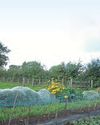
SOW GREEN THIS AUTUMN
Covering the soil with a green manure in winter offers many benefits and this is a good time to sow hardy types, says KG editor Steve Ott

A HISTORICAL HAVEN OF FRUIT AND FLOWERS
KG's Martin Fish takes time out from his own plot to visit a walled garden in Lincolnshire which has been home to the same family for more than 400 years
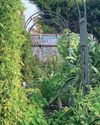
RESTORING THE BALANCE
The phrase regenerative gardening is often heard in gardening circles, but what is it? Can it help you to grow better veg? Ecologist Becky Searle thinks so, and tells us why
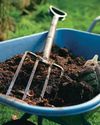
WASTE NOT, WANT NOT
Garden Organic's Anton Rosenfeld shares his expertise on using compost made from green bin collections with handy tips on getting the right consistency and quality
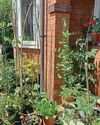
Celebrating Organic September!
In this special section we bring you four great features aimed at improving your crops and allowing nature to thrive
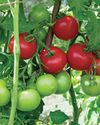
SEEING RED
Do your tomatoes have a habit of remaining stubbornly green? Or perhaps you're lucky to enjoy lots of lovely fruits - just all at once. Either way, Benedict Vanheems is here with some top tips to ripen and process the nation's favourite summer staple
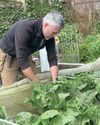
NEW KIDS ON THE BROCCOLI!
Rob Smith is talking broccoli this month with a review of the different types available and suggestions for some exciting new varieties to try
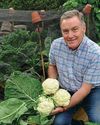
A NEW kitchen garden
Martin Fish is getting down to plenty of picking and planting on the garden veg plot, while Jill is rustling up something pepper-licking good!